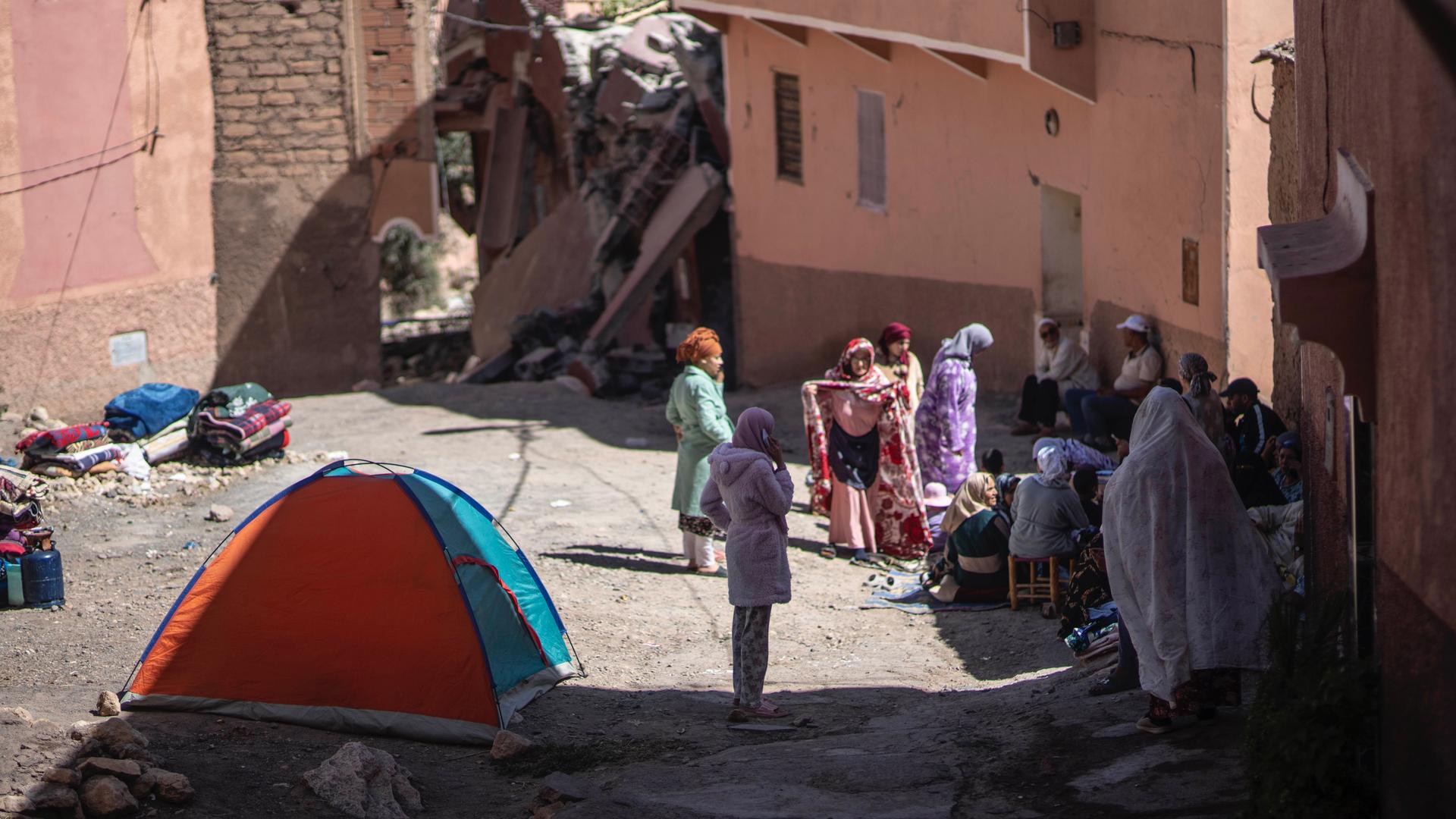‘Organizing chaos’: Moroccans in Spain send aid convoys home after devastating earthquake
Mohamed Fouqi, a mosque director in Barcelona, Spain, has been busy stockpiling earthquake relief supplies in an empty classroom.
He said people swing by daily to drop off donations to help victims of the devastating 6.8-magnitude earthquake that hit Morocco this month.
Spain has the second-largest Moroccan diaspora in the world. Without an official national group to help with disaster relief, Moroccans in Spain who want to help earthquake victims are turning to neighborhood mosques.
They bring in everything from cash to cleaning products. But one item is sorely missing: tents.
Winter is approaching in the Atlas Mountains and the Moroccan government says victims urgently need shelter.
But few people go camping around here, Fouqi said.
Still, Moroccans in Spain are finding ways to ship prioritized items by plane, boat and even driving their own cars south to the border.
One nongovermental organization in Barcelona is trying to coordinate all these individual efforts. But it’s tough.
“I’m trying to organize the chaos,” said Mohammed Alamí, who runs Friends of the Moroccan People, known by its Spanish acronym ITRAN.
Alamí said there’s “a lot to tackle,” from finding trucks and boats to taking aid across the straits of Gibraltar. He also said they have to avoid sending things that won’t make it in, like medicine, for example.
“It won’t get through customs and just creates a bottleneck at the border,” Alamí said.
He usually spends his days frantically searching for transport and getting customs clearances. And while he does that, he sends volunteer Ahmad Assousi to drum up support from the dozens of mosques around Barcelona.
One day, Assousi popped into a large mosque in the nearby town of Cornellá. He introduced himself to the imam and began to explain ITRAN’s efforts. He assured him that they had a free aid truck and all the border paperwork necessary.
But the imam dismissed him.
“I don’t want to hear about trucks or even talk about trucks at all,” the imam said to Assousi. (He asked not to be named in this story).
The imam told The World that the trucks always have problems entering Morocco, and he prefers to send aid by plane.
Assousi eventually left frustrated. He said that all he’s trying to do is “get everyone to work together.”
“Meanwhile, Moroccans in the earthquake are waiting in the cold,” he said.
But things are slowly inching forward.
Mohamed Alamí, president of ITRAN, has now secured a free warehouse in downtown Barcelona.
“Now, various mosques can store relief supplies here [and] coordinate together,” Alamí said.
“And if all goes well, we can load a truck and send it to Morocco within days.”
